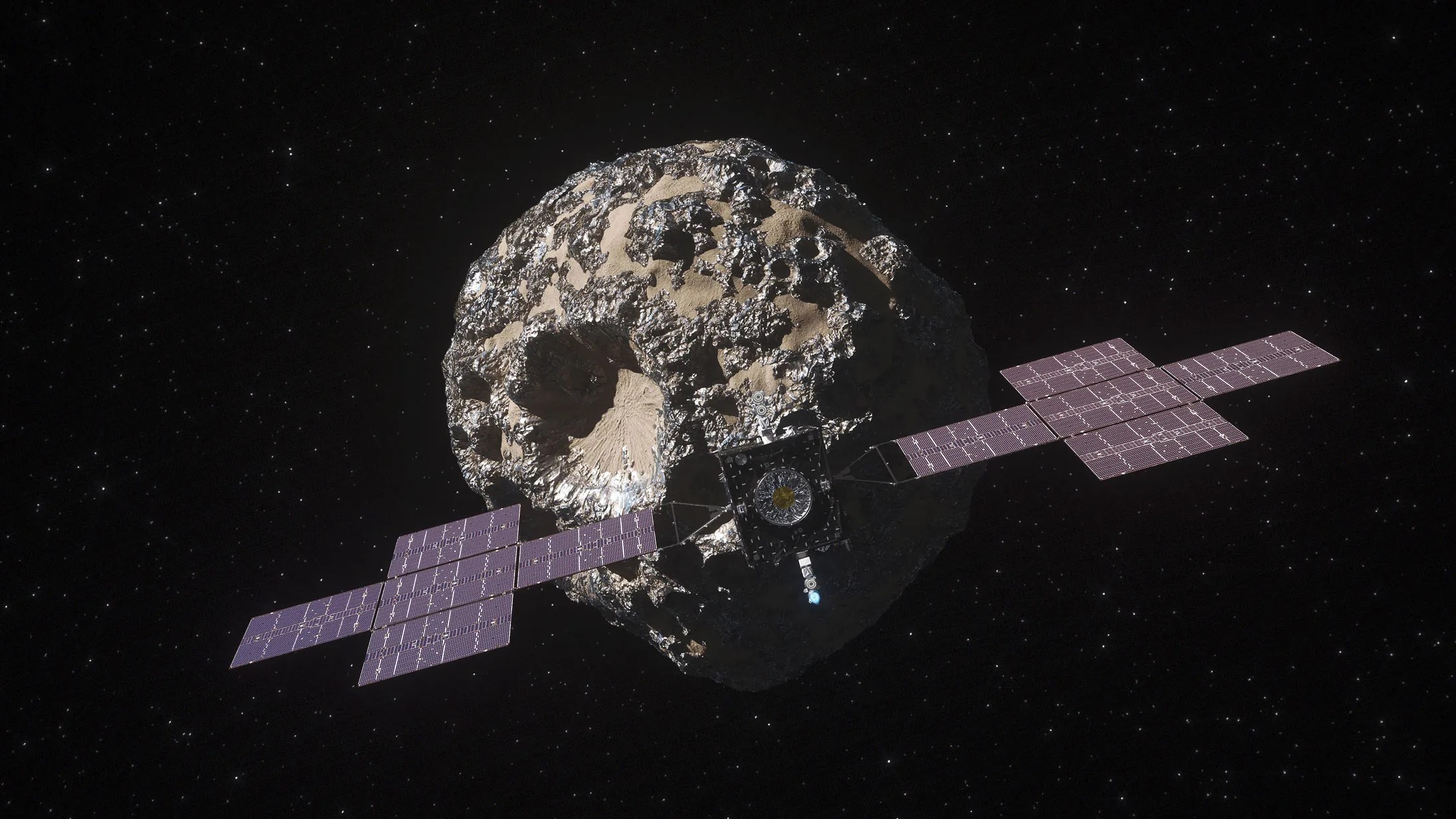
An illustration depicts a NASA spacecraft approaching the metal-rich asteroid Psyche.
Though there are no plans to mine Psyche, such asteroids are being eyed for their valuable resources.
Credit: NASA/JPL-Caltech/ASU Each electric thruster on Psyche generates just 250 milli-newtons of thrust, roughly equivalent to the weight of three quarters.
But they can operate for months at a time, and over the course of a multi-year cruise, these thrusters provide a more efficient means of propulsion than conventional rockets.The plasma thrusters are reshaping the Psyche spacecraft's path toward its destination, a metal-rich asteroid also named Psyche.
The spacecraft's four electric engines, known as Hall effect thrusters, were supplied by a Russian company named Fakel.
Most of the other components in Psyche's propulsion systemcontrollers, xenon fuel tanks, propellant lines, and valvescome from other companies or the spacecraft's primary manufacturer, Maxar Space Systems in California.The Psyche mission is heading first for Mars, where the spacecraft will use the planet's gravity next year to slingshot itself into the asteroid belt, setting up for arrival and orbit insertion around the asteroid Psyche in August 2029.Psyche launched in October 2023 aboard a SpaceX Falcon Heavy rocket on the opening leg of a six-year sojourn through the Solar System.
The mission's total cost adds up to more than $1.4 billion, including development of the spacecraft and its instruments, the launch, operations, and an experimental laser communications package hitching a ride to deep space with Psyche.Psyche, the asteroid, is the size of Massachusetts and circles the Sun in between the orbits of Mars and Jupiter.
No spacecraft has visited Psyche before.
Of the approximately 1 million asteroids discovered so far, scientists say only nine have a metal-rich signature like Psyche.
The team of scientists who put together the Psyche mission have little idea of what to expect when the spacecraft gets there in 2029.Metallic asteroids like Psyche are a mystery.
Most of Psyche's properties are unknown other than estimates of its density and composition.
Predictions about the the look of Psyche's craters, cliffs, and color have inspired artists to create a cacophony of illustrations, often showing sharp spikes and grooves alien to rocky worlds.In a little more than five years, assuming NASA gets past Psyche's propulsion problem, scientists will supplant speculation with solid data.

 17
17







